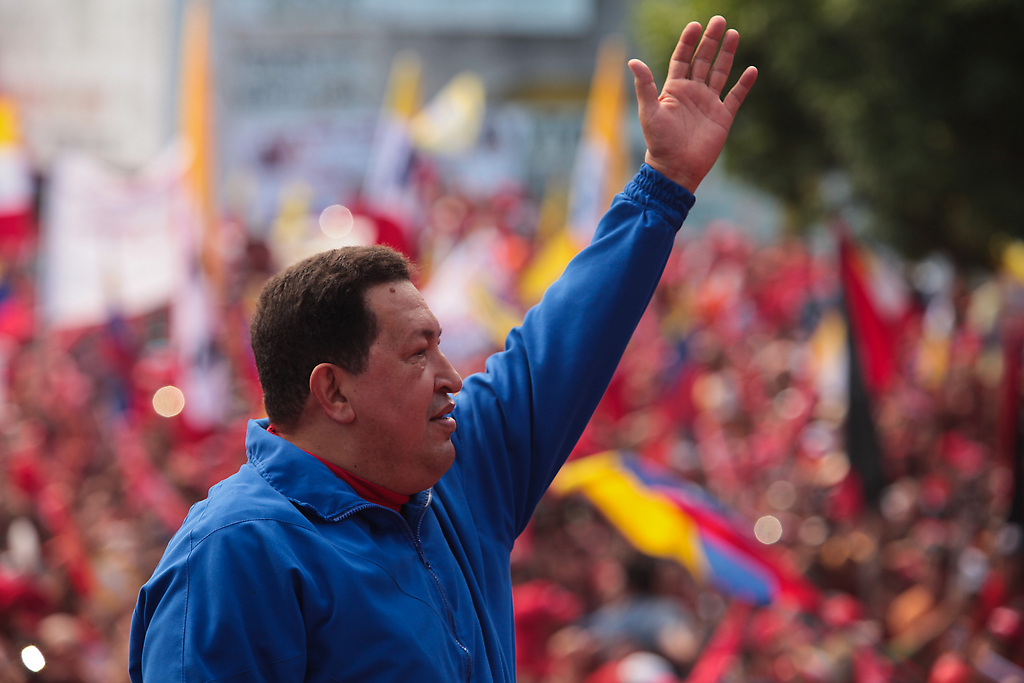Caracas, July 28, 2024.- He said he was born by chance, on a very rainy night, “a night of fierce downpour over the dark plain.” It was a winter night, according to his mother, and from midnight into the day – as they say in those plains – he would see the light in Sabaneta, at his grandmother Rosa’s house, when the pains of his mother, who was only 20 years old, became unbearable. There was no permanent electric light at that time, but there was plenty of water and rain. “There was no moon, no rooster; it was a dark night.”
On that July 28, 1954, fifteen months after one of his brothers, under the sign of Leo in the Western horoscope – like Simón Bolívar and Fidel Castro – and under the sign of the horse according to Chinese tradition, the world would welcome to the great human that was Hugo Chávez, with a “divine mix for those who believe in astrology,” as described by Spanish writer Ignacio Ramonet in his book “Mi primera vida (My first life)”
However, he said that he did not believe in predestination, nor that the course of life was charted at birth by a sign or by stars. But at the same time, he recognized that in those plains where he came into the world, there was a strong vibe, a presence of an almost wild but varied and authentic nature, resistant to the men who have tried to dominate it. And for that reason, in him, and in every llanero (people from the plains) from those lands, their personality and culture were imbued with a challenge for greatness, goals and objectives, for endless wars, magic, and legends.
“Being a llanero also represents a culture: music, the harp, poetry, the couplet… A way of approaching existence, work, nature, love, the greatness of the journey… This is a country of Quixotes,” he used to say.
According to him, the plain was both beautiful and terrible, and within it coexisted beautiful life and atrocious death. To be a llanero, moreover, was to be a poet; while some developed this talent, others carried it in their souls, expressing it through songs or in their lifestyles.
He summarized the circumstances of his birth like this: “It’s like a seed. You throw a seed into a stony ground or a sandy area, and the chances of it sprouting are slim. In contrast, it seems that I was born in fertile soil for something to sprout. It was not only about a man, but a historical time and to participate in it.”
That has been Chávez since then: more a historical time, a mantle that constantly moves from the earthly to the divine, making us return to him again and again, as he is reborn and shows us how much we need him each day. It is essential, then, to drink from his imperishable energy, to walk with him through plains and mountains, cities and poor neighborhoods, to hear him speak from the most diverse platforms or embraced by a young person from the village he encounters along the way.
Chávez has been and is, like never before, in the llanero spirit of his Venezuelan people, in the generosity of those who do not surrender and fight in every corner of Our America, and in the poetry that emerges from ten-line stanzas, songs, traditional religious celebrations, and even in great political speeches that challenge ignominy and defend the best of humanity.
That is him, from the very rainy, dark, and rebellious dawn in which he was born: he is the spirit of struggle, dignity, history, and the essence of the Nation that he helped recover and transform. Today, it stands as a fighter and revolutionary, despite unimaginable dangers and threats. He resides in his people and in that simple warrior wisdom that drives them not to surrender before any adversity.
Yes, he was born in fertile soil, and in his short but eternal existence, he transformed the stony ground and the muddy landscape of our Venezuela, of Our American homeland, into a better place to live. He sowed his seed among all, for all, to be reborn—not every 200 years—but every day, as the peoples fight and are reborn.
Cuba Sí.
